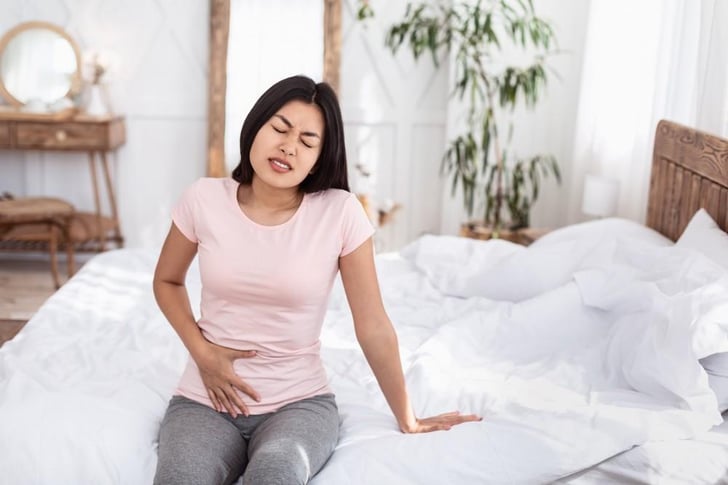Managing your Endometriosis Pain Symptoms
In honor of Endometriosis Awareness month this March, Garden OB/GYN is here to share tips on managing pain symptoms from Endometriosis.

Managing your Endometriosis Pain Symptoms
In honor of Endometriosis Awareness month this March, Garden OB/GYN is here to share some tips on managing your symptoms of Endometriosis.
What is Endometriosis?
The cause of Endometriosis is still unknown, but occurs when uterine tissue, or the tissue that normally lines the inside of your uterus, begins to grow in other body areas outside of the uterus. This may occur on your bladder, fallopian tubes, bowel, abdomen, or ovaries. To learn more about endometriosis, view our detailed endometriosis service page.
What are the Symptoms of Endometriosis?
Not every woman with endometriosis experiences symptoms, but those who do largely complain about the pain that accompanies the condition. In fact, pain is the primary and most common symptom of endometriosis. This pain can range from mild and fleeting to chronic, excruciating, and lingering. Our providers at Garden OB/GYN understand that endometriosis pain can be debilitating, uncomfortable and/or disruptive, and can help offer different options and tips to manage the pain.
Why Does Endometriosis Cause Pain?
As mentioned earlier, endometriosis occurs when uterine tissue grows outside the uterus. This is problematic because this tissue functions as if it lived inside the uterus, thickening and then breaking down each month in alignment with your menstrual cycle. This means that each time you menstruate, the displaced uterine tissue breaks down and bleeds, but unlike the uterine tissue within the uterus, the endometriosis tissue has no way of leaving your body. As a result, it is trapped, causing issues like cysts, scar tissue, and adhesions in the body which trigger immense pain.
What Type of Pain Happens With Endometriosis?
If you have endometriosis, you may experience pain in your pelvis, during intercourse, during menstruation or the week before your period, when you go to the bathroom (either urinating or having a bowel movement). Pain with endometriosis can be either acute or chronic. The severity of the pain you experience does not also correlate with the severity of your endometriosis. It is possible that a small bit of endometriosis can result in intense pain, while extensive endometriosis pain could be associated with mild pain.
How Can I Manage Endometriosis Pain?
Some tips for managing endometriosis pain include:
- Applying heat therapy to the pain area - this could include using a heating pad, heat wrap, or taking a hot bath or shower
- Over-the-counter Medication - Talk to your Garden OB/GYN provider about taking a Nonsteroidal Anti-Inflammatory Drug (NAIDs) to manage the pain
- Hormonal Medication - your Garden OB/GYN provider may recommend taking medicine that reduces or stops your menstrual periods as many women experience endometriosis pain during their period.
- Minimally invasive surgery - if your pain symptoms are intolerable, your provider may recommend surgery to remove the endometriosis patch
- Dietary and supplement changes - it is recommended to eat a diet packed with vegetables, Omega-3s, and anti-inflammatory foods. Supplements can also be useful to ensure you are receiving proper vitamins and nutrients in your diet. Certain supplements can also help to reduce inflammation that may be contributing to some of the pain associated with endometriosis
- Manage your stress - keeping your body relaxed may help reduce pain. Meditation, breathing techniques, and stretching are just some relaxation techniques that may be beneficial
- Track your pain - tracking your pain either in a pain journal or app can be helpful for both you and your Garden OB/GYN provider. This information can highlight what may be triggering or affecting your symptoms and pain.
- Exercise - there is some evidence that moderate exercise can help prevent endometriosis tissue from spreading. Yoga, stretching, and pelvic physical therapy can also help the muscles in your pelvis relax, which could help with pain management
We know how painful living with endometriosis can be. Our team of compassionate, caring providers can help treat and manage your endometriosis so that you can live your best life.
































